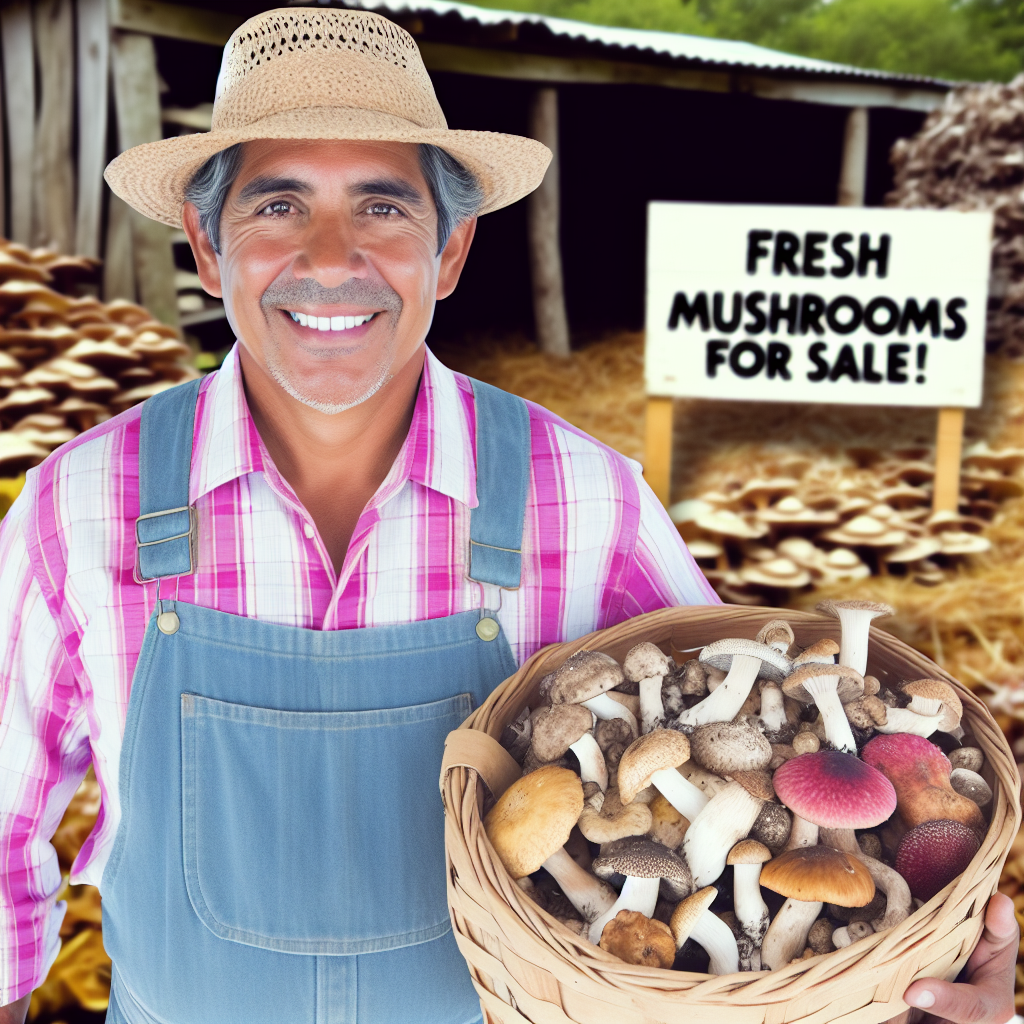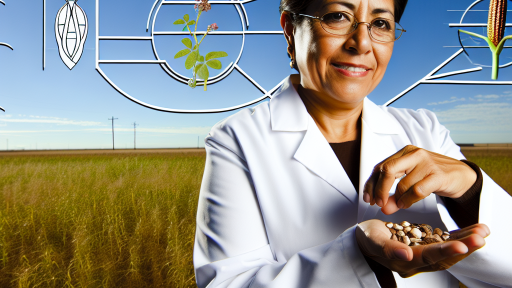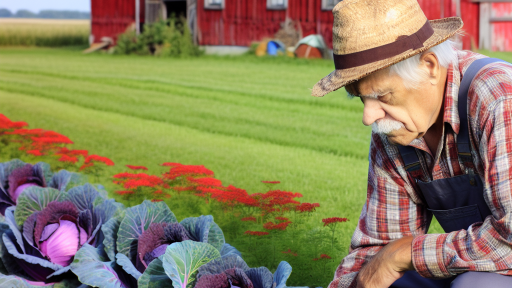Understanding Your Target Market for Mushroom Sales
Identifying Your Audience
Recognizing who buys your mushrooms is vital for effective marketing.
Potential customers include restaurants, grocery stores, and health-conscious individuals.
Additionally, identify local markets or farmers’ markets where consumers may prefer fresh produce.
Understanding Consumer Preferences
Different segments of the market have unique preferences for mushroom types.
For instance, chefs might favor specialty varieties like shiitake or oyster mushrooms.
In contrast, health-conscious buyers often seek common types like button or portobello mushrooms.
Conduct surveys to gather insights on customer preferences and buying habits.
Analyzing Market Trends
Stay updated on the latest trends in the food industry.
For example, the rise of plant-based diets influences mushroom sales significantly.
Also, consider sustainability trends as consumers increasingly prefer eco-friendly products.
Regularly review industry reports and blogs to identify new opportunities.
Segmentation Strategies
Segmenting your market helps tailor your marketing strategies effectively.
Consider geographic, demographic, and psychographic factors.
For instance, urban areas may have a higher demand for gourmet mushrooms.
Conversely, rural areas might show interest in bulk purchases for wholesale distribution.
Transform Your Agribusiness
Unlock your farm's potential with expert advice tailored to your needs. Get actionable steps that drive real results.
Get StartedCreating Customer Personas
Developing customer personas can guide your marketing decisions.
A persona could represent a health-focused parent who prioritizes organic produce.
Alternatively, consider a gourmet chef who seeks diverse mushroom options.
These personas help target your messaging and promotional efforts effectively.
Establishing Direct Communication Channels
Engaging with your market directly enhances relationship building.
Use social media platforms to interact with consumers and gather feedback.
Also, consider newsletters or community events to promote your products.
Establishing loyalty programs can encourage repeat purchases from existing customers.
Developing a Unique Selling Proposition for Your Mushroom Farm
Identifying Your Niche
Begin by assessing your local market for mushroom products.
Look at existing farms and identify their strengths and weaknesses.
Consider specializing in unique mushroom varieties.
For instance, focus on gourmet or medicinal mushrooms.
Next, evaluate your production methods and what sets you apart.
Understanding Your Target Audience
Your target audience influences your selling proposition.
Think about health-conscious consumers who seek organic options.
Consider restaurants looking for high-quality, fresh ingredients.
Additionally, connect with local chefs interested in unique flavors.
Engage with urban gardeners and hobbyists to tap into their passion.
Highlighting Quality and Freshness
Emphasize the quality of your mushrooms in marketing materials.
Share information about your growing practices with customers.
Highlight the benefits of purchasing local, fresh mushrooms.
Consider offering farm tours to showcase your production methods.
Building Your Brand Story
Craft a narrative that resonates with your audience.
Share your journey and passion for mushroom farming.
Showcase Your Farming Business
Publish your professional farming services profile on our blog for a one-time fee of $200 and reach a dedicated audience of farmers and agribusiness owners.
Publish Your ProfileInclude testimonials from satisfied customers and chefs.
Utilize social media to share behind-the-scenes content often.
Creating Effective Marketing Materials
Develop pamphlets that highlight your unique selling points.
Consider designing eye-catching labels for your products.
Include clear information about flavors, uses, and benefits.
Additionally, create an informative website showcasing your brand.
Leveraging Local Networks
Connect with local farmers’ markets to boost your visibility.
Collaborate with other local businesses to cross-promote products.
Engage in community events to cultivate relationships.
Offer sampling opportunities to entice potential customers.
Utilizing Digital Marketing Strategies
Leverage social media platforms for targeted advertising.
Engage your audience with informative posts about mushrooms.
Consider running promotions or contests to boost engagement.
Utilize email marketing to keep customers informed of new products.
Utilizing Social Media Platforms to Promote Mushroom Products
Choosing the Right Platforms
Selecting the right social media platform is crucial for promotion.
Different platforms cater to various audiences.
For instance, Instagram is visual, while Twitter is text-heavy.
Thus, identify where your target customers spend their time.
Creating Engaging Content
Quality content attracts and retains followers.
Share visually appealing images of your mushroom products.
Consider posting recipe ideas featuring mushrooms.
Videos showcasing your farming process can also engage viewers.
Using Hashtags Effectively
Hashtags increase the visibility of your posts.
Research trending hashtags relevant to mushrooms.
Incorporate both popular and niche hashtags.
This strategy broadens your post’s reach significantly.
Engaging with Your Audience
Engagement builds community around your brand.
Respond promptly to comments and messages.
Ask for feedback and encourage user-generated content.
Such interaction fosters loyalty among your customers.
Collaborating with Influencers
Partnering with influencers can expand your reach.
Identify influencers in the food or sustainable farming niches.
Collaborate on content like tastings or farm visits.
This approach introduces your products to new audiences.
Running Promotions and Contests
Promotions and contests can drive traffic to your social pages.
For example, offer discounts for social media followers.
Consider running photo contests featuring your mushrooms.
Such initiatives encourage sharing and increase your visibility.
Find Out More: Integrating Seed Saving Into Farm Management
Establishing Partnerships with Local Restaurants and Grocery Stores
Identifying Potential Partners
Begin by researching local restaurants that emphasize fresh, local ingredients.
Showcase Your Farming Business
Publish your professional farming services profile on our blog for a one-time fee of $200 and reach a dedicated audience of farmers and agribusiness owners.
Publish Your ProfileVisit farmers’ markets to connect with food retailers who support local agriculture.
Compile a list of establishments within your area that might use mushrooms.
Creating a Compelling Pitch
Develop a clear value proposition showcasing the benefits of your mushrooms.
Emphasize the quality and freshness of your products in your messaging.
Include information on sustainable farming practices to attract eco-conscious partners.
Networking Opportunities
Attend local food events to meet restaurant owners and grocery store managers.
Participate in community gatherings to build relationships and network effectively.
Consider offering samples to create interest and demonstrate your product’s quality.
Building Long-Term Relationships
Maintain open communication with your partners to ensure mutual satisfaction.
Regularly discuss product availability and any new varieties you may introduce.
Be responsive to feedback and adapt your offerings based on their needs.
Marketing Strategies for Collaboration
Collaborate on special promotions or events to attract more customers.
Utilize social media to highlight partnerships and share success stories.
Encourage partners to feature your mushrooms in their menus or specials.
Evaluating Partnership Success
Set clear metrics to evaluate the effectiveness of your partnerships.
Track sales growth and customer feedback related to your products.
Adjust your marketing strategies based on what works best for both of you.
Delve into the Subject: Seed Selection Techniques For Resilient Crops
Creating Educational Content to Engage Customers and Drive Sales
Defining Your Target Audience
Identify who your potential customers are.
Consider factors like age, location, and interests.
Understanding their needs will guide your content strategy.
Types of Educational Content
Focus on creating various types of educational resources.
Blog posts can share tips for cooking with mushrooms.
Videos can demonstrate the growing process effectively.
Infographics can visually represent nutritional benefits.
Blog Posts
Blogging helps establish authority in the market.
Share recipes, mushroom varieties, and cooking techniques.
Engaging stories resonate with your audience and draw them in.
Videos
Videos are easily shareable across social media platforms.
Create tutorials on how to identify edible mushrooms.
Live stream Q&A sessions to engage your audience.
Infographics
Infographics simplify complex information for easy understanding.
Visuals can illustrate health benefits and cooking tips.
Share these on your website and social media channels.
Utilizing Social Media
Social media provides a platform to reach your audience directly.
Share educational content regularly to keep followers engaged.
Encourage discussions and respond to questions promptly.
Engagement Strategies
Run educational polls to gather insights and opinions.
Create challenges that encourage followers to share their recipes.
Feature customer stories to build community and trust.
Showcase Your Farming Business
Publish your professional farming services profile on our blog for a one-time fee of $200 and reach a dedicated audience of farmers and agribusiness owners.
Publish Your ProfileMeasuring Success
Track engagement metrics to evaluate your content’s effectiveness.
Use tools like Google Analytics to monitor website traffic.
Analyze social media insights to see what resonates most.
Continuously Evolving Your Content
Stay updated on trends in the mushroom industry.
Be open to changing your approach based on feedback.
Regularly refresh content to keep it relevant and interesting.
You Might Also Like: Common Mistakes in Hydroponic Farming

Implementing Seasonal Promotions and Discounts for Enhanced Visibility
Understanding the Importance of Seasonal Promotions
Seasonal promotions can significantly boost sales for your mushroom farm.
These sales can attract new customers looking for fresh and local produce.
Additionally, they help clear out stock during off-peak times.
Effective promotions increase visibility within your community.
They also strengthen relationships with existing customers.
Identifying Key Seasons for Promotions
Recognizing key seasons is essential for effective promotions.
Spring and fall typically showcase mushroom harvest peaks.
Holidays like Thanksgiving can create great opportunities for sales.
Consider seasonal events such as farmers’ markets or food festivals.
Analyze customer buying patterns to identify optimal promotion periods.
Developing Effective Promotional Strategies
Creating attractive discounts is vital for successful promotions.
Consider percentage discounts or buy-one-get-one-free offers.
Highlight your unique varieties to attract attention.
Utilizing social media can enhance your promotional reach.
Collaborate with local chefs to craft appealing recipes featuring your mushrooms.
Marketing Your Seasonal Promotions
Effective marketing is crucial for advertising your seasonal promotions.
Use social media platforms to announce special deals to your audience.
Leverage email newsletters to keep your customers informed.
Consider local newspapers or community boards for broader visibility.
Engage with your audience by sharing attractive images of your products.
Measuring the Impact of Your Promotions
Evaluating the success of your promotions helps refine future strategies.
Track sales data during promotional periods carefully.
Gather customer feedback through surveys or social media interactions.
Analyze which promotions performed best and why.
Use these insights to adjust your future marketing strategies accordingly.
Find Out More: Enhancing Biodiversity on Organic Farms
Leveraging Farmer’s Markets and Local Events for Direct Sales
Understanding Farmer’s Markets
Farmer’s markets provide a direct connection between producers and consumers.
They allow mushroom farmers to showcase their products directly to eager customers.
These markets often attract individuals interested in fresh and locally sourced produce.
Benefits of Participating in Farmer’s Markets
Participation increases your visibility in the community.
It also fosters relationships with local consumers and other vendors.
Additionally, it allows for immediate feedback on your mushroom varieties and quality.
More importantly, you can develop a loyal customer base over time.
Showcase Your Farming Business
Publish your professional farming services profile on our blog for a one-time fee of $200 and reach a dedicated audience of farmers and agribusiness owners.
Publish Your ProfileStrategies for Success at Farmer’s Markets
Make your booth visually appealing to attract customers.
Use banners and displays to showcase your mushrooms effectively.
Offer samples to entice shoppers and highlight your mushrooms’ unique flavors.
Engage with customers by sharing information about your farming practices.
Utilize social media to promote your market appearances and special offers.
Participating in Local Events
Local events provide another opportunity to sell your mushrooms and interact with the community.
These events can include fairs, festivals, and food expos.
Joining forces with local chefs or restaurants can enhance your product’s appeal.
Collaborate for cooking demonstrations or tastings to showcase mushroom benefits.
Building Partnerships and Collaborations
Establish connections with other local farmers and businesses.
This cooperation can lead to joint marketing efforts, increasing exposure for all parties.
Cross-promote your products by participating in each other’s events.
Consider creating a local food network or group to boost overall sales.
Maximizing Customer Engagement
Create a mailing list to keep customers informed about your farm.
Consider offering a loyalty program to reward repeat customers.
Engage with customers on social media to foster community involvement.
Share recipes and cooking tips that include your mushrooms.
This makes your product relatable and encourages more purchases.
Direct Sales Strategies
By leveraging farmer’s markets and local events, you can boost your sales.
Direct engagement with customers can deepen their appreciation for your mushrooms.
Moreover, building community ties will enhance your farm’s reputation.
Exploring E-commerce Opportunities for Expanding Market Reach
Understanding E-commerce Basics
E-commerce allows you to sell products online effortlessly.
This opportunity significantly broadens your customer base.
Setting up an online store attracts tech-savvy consumers.
Additionally, it makes your mushroom farm accessible to distant customers.
Choosing the Right E-commerce Platform
Selecting the right platform is crucial for success.
Popular options include Shopify, WooCommerce, and Etsy.
Shopify offers user-friendly setup and design tools.
WooCommerce integrates seamlessly with WordPress websites.
Etsy caters specifically to artisanal and organic products.
Implementing Effective Marketing Strategies
Once your store is ready, marketing is essential.
Utilize social media to reach a wider audience.
Platforms like Instagram and Facebook showcase your mushrooms visually.
Email marketing can also drive repeat customers.
Consider offering discounts to first-time buyers for more engagement.
Enhancing Customer Experience
Your website should be user-friendly and mobile-optimized.
A streamlined checkout process reduces cart abandonment rates.
High-quality images and detailed descriptions build trust with customers.
Including customer reviews can further boost credibility.
Leveraging Analytics for Improvement
Utilize analytics to track visitor behavior on your site.
Showcase Your Farming Business
Publish your professional farming services profile on our blog for a one-time fee of $200 and reach a dedicated audience of farmers and agribusiness owners.
Publish Your ProfilePlatforms like Google Analytics provide valuable insights.
Identify which products perform best through this data.
Adjust your marketing strategies based on customer preferences.
Expanding Through Partnerships
Consider collaborating with local restaurants or grocery stores.
Such partnerships can enhance your visibility in the community.
You might also explore co-marketing opportunities.
Partnering with chefs can create exciting new recipes or products.
Additional Resources
Small farm recommendations : r/farming
Growing Mushrooms for Fun and Profit | Edible Northeast Florida




